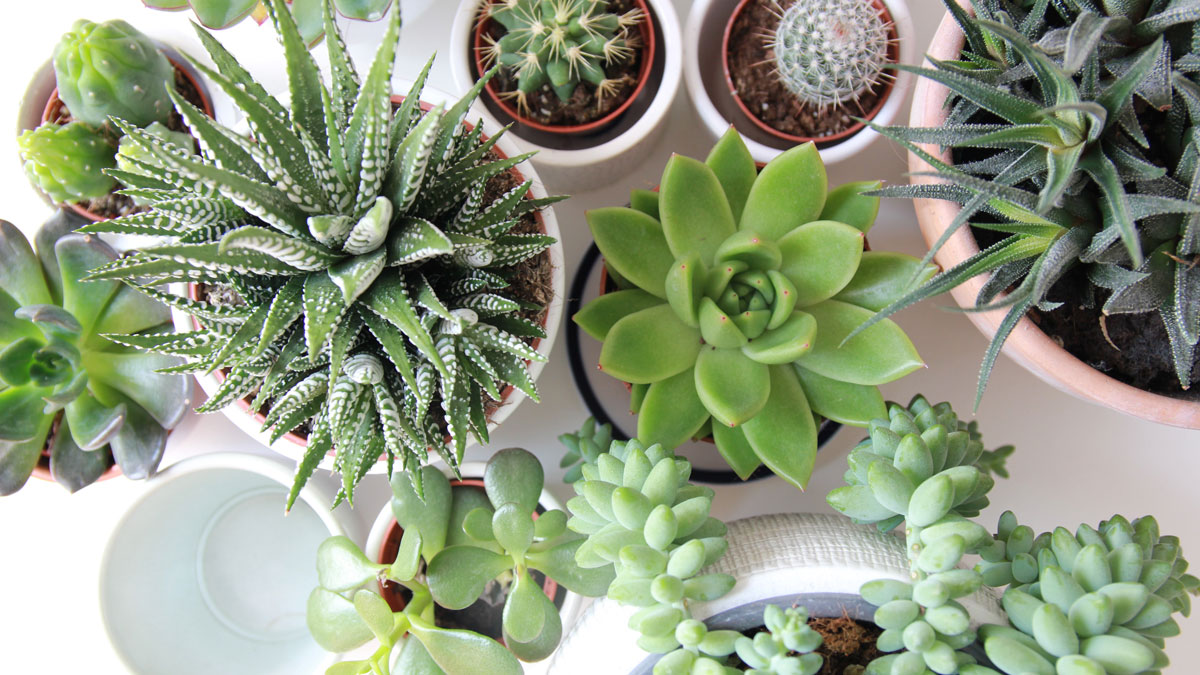The Royal Horticultural society reports a huge rise (by a third) in houseplant sales as people in the UK turn to indoor gardening during lockdown.
Reports show that younger generations are responsible for the increased interest in indoor plants, as figures show that 75% of 16-24 year olds are now houseplant owners; indoor plants are back in.
Indoor plants are thought to have a positive effect on mental health and well-being, and a snapshot of greenery is a sure way to get you some Instagram likes. But if you’re one of these new plant parents during lockdown, you might be worried about keeping your new leafy family alive when you return to work.
Keeping your plants healthy, growing and blooming can be a challenge while you’re away, so apartment rental brand Essential Living has rustled together 7 healthy houseplant hacks to keep your plant alive on your return to work (even if you lack a green thumb).
7 Simple steps to Keep Your houseplant alive
Going back to work and worried about your indoor garden? Here are 7 simple tips to make sure your plants stay alive while you’re gone.
Providing your plants with the correct amount of water. When returning to work an obvious solution to keeping your plants hydrated would be to overwater. Doing this can potentially damage the plant’s root and prevent growth, so as an alternative we suggest your soil is moist, but not wet.
If your plant leaves begin to turn brown and wilt, this is a clear sign of over watering. To check your plant’s hydration level, place your finger into the soil – if there is alot of soil sticking to your finger, then the plant doesn’t need watering and if there is no soil on your finger, this suggests your plant needs more water. Simple!
Choose a plant that’s easy to care for. If you are yet to pick the perfect plant for your home, then choosing a plant that requires minimal effect is the best solution. There are a large variety of indoor plants that don’t need regular attention, for example the snake plant and spider plant. Find an indoor plant to match your busy work schedule.
Remember to clean your houseplants. On return to work you may find yourself with a lot less time to focus on your plants, they may even begin to catch dust. Dust on your plants prevents sunlight from reaching them, which will have an impact on growth.
Using a damp cloth or fluffy duster, clean your plant leaves once a month but remember to be extra cautious, you don’t want to damage the leaves through being heavy handed.
Providing the right home temperature. You may find that when returning to work the temperature of your home may alter, heating systems have the tendency to dry the air. And although most indoor plants prefer slightly warmer surroundings, being placed near a heating system can cause plant leaves to dry up and go brown.
An easy way to increase the humidity for your plant is to create a pebble tray. Add clean pebbles into a shallow water-filled tray and place your plant on top, the water will gradually evaporate around the plant. Ensure that you never leave your greenery on or near a heated radiator!
Find the perfect plant location and keep it. When returning to work you may begin to worry about the exposure of sunlight your indoor plant is getting. Plants have the ability to acclimate themselves to their surroundings, so it’s more safe that you don’t move them around alot. Each plant classification is different, so research into your chosen plant to find their ideal living environment.
Avoid using common fertilisers. While you’re working and have less time to care for your indoor plants, it’s best to keep them growing as slowly as possible. Fertilisers increase the growth speed of your indoor plants. If however you do want to see results fast, then consider creating a makeshift greenhouse by watering your plant thoroughly and covering your plant with a clear plastic back with holes in for circulation.
Reduce the lighting exposure. Try moving your plants away from windows when you return to work, so that photosynthesise is reduced therefore the plant will require less moisture. However don’t move your indoor plant into a dark corner, just move a little back from the window. A great location to store your plants in a bathroom, as it provides humidity and moisture for your plant.
Nick Woodward, Head of Lettings at Essential Living said: “We have seen an increase in apartment living amongst younger generations as they seem to recognise the potential lifestyle and financial benefits of renting.”
” We encourage our residents to make their apartments as comfortable as possible and this has been even more important during the UK lockdown.
“House plants have been proven to have a positive impact on mental wellbeing, improve concentration and purify the air around us, so houseplants are a great way to create a relaxing and mindful environment inside.”











 Deering Estate
Deering Estate
 Massage Envy South Miami
Massage Envy South Miami
 Calla Blow Dry
Calla Blow Dry
 My Derma Clinic
My Derma Clinic
 Sushi Maki
Sushi Maki
 Sports Grill
Sports Grill
 The Healthy Kitchen
The Healthy Kitchen
 Golden Rule Seafood
Golden Rule Seafood
 Malanga Cuban Café
Malanga Cuban Café

 Kathleen Ballard
Kathleen Ballard
 Panter, Panter & Sampedro
Panter, Panter & Sampedro
 Vintage Liquors
Vintage Liquors
 The Dog from Ipanema
The Dog from Ipanema
 Rubinstein Family Chiropractic
Rubinstein Family Chiropractic
 Your Pet’s Best
Your Pet’s Best
 Indigo Republic
Indigo Republic




 ATR Luxury Homes
ATR Luxury Homes


 2112 Design Studio
2112 Design Studio
 Hamilton Fox & Company
Hamilton Fox & Company
 Creative Design Services
Creative Design Services
 Best Pest Professionals
Best Pest Professionals
 HD Tree Services
HD Tree Services
 Trinity Air Conditioning Company
Trinity Air Conditioning Company
 Cisca Construction & Development
Cisca Construction & Development
 Mosquito Joe
Mosquito Joe
 Cutler Bay Solar Solutions
Cutler Bay Solar Solutions


 Miami Royal Ballet & Dance
Miami Royal Ballet & Dance
 Christopher Columbus
Christopher Columbus
 Pineview Preschools
Pineview Preschools
 Westminster
Westminster
 Carrollton
Carrollton
 Lil’ Jungle
Lil’ Jungle
 Frost Science Museum
Frost Science Museum
 Palmer Trinity School
Palmer Trinity School
 South Florida Music
South Florida Music
 Pinecrest Orthodontics
Pinecrest Orthodontics
 Dr. Bob Pediatric Dentist
Dr. Bob Pediatric Dentist
 d.pediatrics
d.pediatrics
 South Miami Women’s Health
South Miami Women’s Health

 The Spot Barbershop
The Spot Barbershop
 My Derma Clinic
My Derma Clinic




 Miami Dance Project
Miami Dance Project

 Rubinstein Family Chiropractic
Rubinstein Family Chiropractic
 Indigo Republic
Indigo Republic

 Safes Universe
Safes Universe
 Vintage Liquors
Vintage Liquors
 Evenings Delight
Evenings Delight





 Atchana’s Homegrown Thai
Atchana’s Homegrown Thai
 Baptist Health South Florida
Baptist Health South Florida

 Laser Eye Center of Miami
Laser Eye Center of Miami
 Visiting Angels
Visiting Angels
 OpusCare of South Florida
OpusCare of South Florida

 Your Pet’s Best
Your Pet’s Best





 HD Tree Services
HD Tree Services
 Hamilton Fox & Company
Hamilton Fox & Company


 Creative Design Services
Creative Design Services